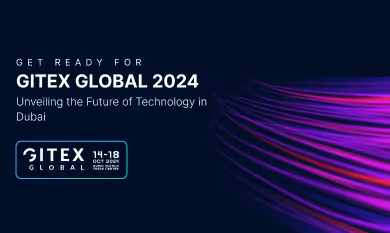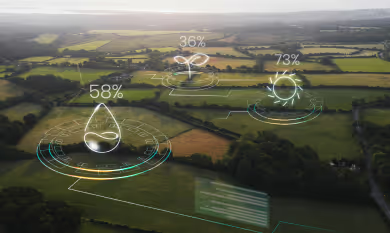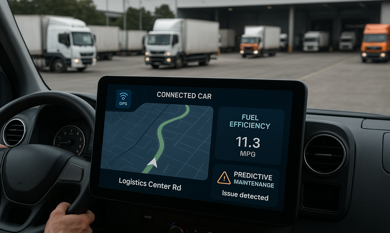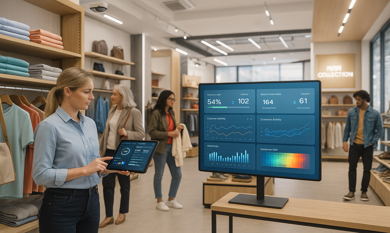Dubai's insurance sector is experiencing a major shift as digital transformation accelerates. With rising policy demands and stricter regulations, insurers are seeking efficient, tech-driven methods to handle claims. The conventional approach—marked by tedious data entry, prolonged reviews, and approval delays—impacts service efficiency and affects customer satisfaction.
To overcome these challenges, many forward-thinking insurers in the UAE are turning to intelligent automation insurance Dubai initiatives that combine Robotic Process Automation (RPA), AI Bots, and AI Agents. Together, these technologies deliver end-to-end automation, streamline data flow, and improve decision accuracy across every stage of claims handling. The result is a future-ready ecosystem of digital claims automation that operates faster, smarter, and more reliably.
Pain Points in Insurance Claims
Before automation, claims processing relies heavily on human involvement. Agents must extract data from emails, verify policy details, and communicate updates through multiple systems. This traditional setup leads to:
- Manual data errors: Even minor mistakes during data entry can delay settlements and require re-verification.
- Siloed systems: Underwriting, compliance, and claims often work on disconnected platforms, slowing information exchange.
- Delayed communication: Customers frequently wait days for updates, damaging satisfaction scores.
- Limited fraud detection: Manual checks make it harder to spot suspicious claims quickly.
These recurring pain points demonstrate the urgent need for digital claims automation — not just as a tool for speed, but as a foundation for sustainable, transparent operations.
RPA – The Foundation of Process Automation
Robotic Process Automation (RPA) plays a foundational role in digital change by streamlining repetitive, rule-based insurance tasks. In the insurance sector, RPA acts as a digital workforce capable of performing activities such as:
- Extracting policyholder data from claim forms.
- Validating policy numbers and checking eligibility.
- Uploading data into enterprise systems and generating reports.
- Cross-checking payment details with back-office databases.
Through RPA & AI bots insurance claims Dubai frameworks, insurers reduce reliance on manual input and eliminate common inefficiencies in data processing. This base layer ensures improved data precision, adherence to regional regulations, and easy traceability across the entire claims journey.
In short, robotic process automation insurance claims UAE initiatives form the base layer upon which intelligent automation can scale.
AI Bots – Adding Intelligence to Claims Handling
While RPA handles structured tasks, AI Bots bring intelligence and adaptability to customer interaction and unstructured data processing.
AI bots leverage technologies like Natural Language Processing (NLP) and Optical Character Recognition (OCR) to understand documents, manage customer queries, and fetch claim status instantly. By integrating insurance chatbot automation UAE, insurers can provide 24/7 support without expanding their customer-service teams.
These bots assist customers in uploading documents, checking policy coverage, and receiving updates within seconds. Similarly, conversational AI insurance claims UAE systems can recognize intent, route complex issues to human agents when necessary, and learn from each interaction to continuously improve response accuracy.
The outcome is a more engaging, responsive, and consistent customer experience — one that reduces backlogs and increases trust.
AI Agents – The Cognitive Decision Layer
As automation evolves, autonomous AI agents insurance UAE bring in advanced reasoning and dynamic decision-making abilities. Unlike bots that follow fixed commands, AI agents review historical information, detect patterns in claims, and suggest data-driven actions.
Their responsibilities may include:
- Detecting fraudulent activity by comparing claim behavior with prior records.
- Assessing risk scores using predictive analytics.
- Prioritizing claims based on policy value, urgency, or customer type.
This AI-driven claims processing approach allows insurers to shift from rule-based operations to adaptive systems that think, learn, and act independently. AI Agents not only accelerate processing but also reduce financial leakage by identifying irregularities early in the cycle.
Unified Workflow – RPA + AI Bots + AI Agents
When combined, these three layers of automation form a single, intelligent workflow. The synergy results in hyperautomation in insurance, where each component complements the other seamlessly.
- RPA collects claim data from multiple channels (email, web forms, legacy systems).
- AI Bots verify information, extract unstructured data, and communicate with customers for clarifications.
- AI Agents evaluate claims contextually, detect anomalies, and trigger final approvals or rejections.
This end-to-end flow minimizes manual intervention, reduces average claim turnaround time, and ensures consistent policy compliance.

By deploying smart workflow automation tools, insurers can visualize real-time progress, identify process bottlenecks, and scale operations with minimal overhead.
Real-Life Example – AXA Insurance
A strong example of automation in action is seen at AXA Insurance, where a blended approach using RPA, AI bots, and AI agents helps manage thousands of claims on a weekly basis. Read more
- RPA automated structured tasks such as data extraction and policy verification.
- AI Bots managed customer conversations and document uploads through chat interfaces.
- AI Agents performed contextual risk assessment and flagged anomalies for manual review.
This unified system helped AXA accelerate claims, enhance compliance, and deliver a better overall customer experience. The initiative shows how insurers in Dubai can adopt similar intelligent automation frameworks to enhance both efficiency and reliability without overhauling existing infrastructure.
Development ROI & Commercial Benefits
The commercial benefits of automation extend beyond time savings. Key advantages include:
- Processing Speed: Claim approval and disbursal cycles become up to 40% faster compared to traditional workflows.
- Operational Efficiency: Automation reduces manual involvement by around 25–30%, freeing human resources for complex cases.
- Error Reduction: RPA’s precision minimizes data inconsistencies, ensuring regulatory compliance.
- Fraud Detection: AI Agents enhance pattern recognition, preventing losses through early alerts.
- Customer Satisfaction: AI Bots provide 24/7 responses, improving customer trust and retention rates.
These outcomes collectively reflect significant fintech digital efficiency and showcase the business value of hyperautomation in insurance. Over time, insurers experience measurable ROI through reduced costs, higher claim accuracy, and improved employee productivity.
Why Choose Theta Technolabs
Theta Technolabs specializes in developing scalable automation ecosystems tailored for fintech and insurance enterprises. As a best app development company in Dubai, Theta integrates Web, Mobile, and Cloud technologies with intelligent automation frameworks to streamline business operations.
From custom RPA solutions to conversational AI integrations, the company provides end-to-end digital transformation that enhances process reliability and customer engagement. Theta’s development teams emphasize data security, scalability, and compliance—critical aspects for Dubai’s regulated insurance market.
FAQ
Q1. What is the role of RPA in insurance claims processing?
RPA automates repetitive tasks such as claim data entry, policy validation, and payment reconciliation. This leads to faster claim resolution and fewer human errors.
Q2. How do AI Bots improve insurance operations?
AI Bots interact directly with customers, handle queries, validate documents, and deliver instant status updates, improving transparency and satisfaction.
Q3. What are AI Agents, and how are they different from bots?
AI Agents perform advanced reasoning and pattern detection. Unlike bots that execute set commands, agents learn from data to make informed decisions, like detecting fraud or prioritizing claims.
Q4. Why should insurers in Dubai adopt intelligent automation?
Intelligent automation unites RPA, AI Bots, and AI Agents into a single system that reduces processing time, strengthens compliance, and enhances digital readiness in alignment with Dubai’s innovation goals.
Conclusion
The convergence of RPA, AI Bots, and AI Agents marks a defining shift in how insurers handle claims in Dubai. This ecosystem transforms manual, error-prone processes into a connected, efficient, and intelligent operation.
By adopting these technologies, insurers achieve faster settlements, stronger fraud protection, and superior customer satisfaction — all essential in a competitive market. Partnering with an AI development company in Dubai ensures the expertise needed to implement automation seamlessly and securely.
Theta Technolabs leverages its proficiency in Web, Mobile, and Cloud solutions to deliver secure, scalable, and intelligent automation frameworks that help insurers modernize their workflows and stay future-ready.
Transform Your Insurance Claims with RPA, AI Bots, and AI Agents
Partner with Theta Technolabs to automate your insurance claims lifecycle using next-generation technologies. 📩 Contact us at sales@thetatechnolabs.com


















_Computer%20Vision-enabled%20Web%20and%20Mobile%20Interfaces%20for%20Mall%20Management%20in%20Dubai_Q1_In_24.avif)
_Smart%20Solutions%20for%20Healthcare_%20How%20IoT%20Development%20is%20Reshaping%20Dubai%20Hospitals_Q1_In_24.avif)
_Automated%20Checkout%20Systems.avif)
_Smart%20Manufacturing%20in%20Dubai_%20How%20AI%20is%20Driving%20Efficiency%20and%20Innovation_Q1_In_24.avif)

_Understanding%20the%20Impact%20of%20AI%20and%20Machine%20Learning%20on%20Fintech%20Web%20Apps%20in%20Dubai_Q2_24.avif)
_Explore%20the%20Best%20Cross-Platform%20App%20Development%20Frameworks%20of%202024_Q3_24.avif)


_Top%20Benefits%20of%20Cloud%20Computing%20for%20All%20Business%20Sectors_Q2_24.avif)
_Integrating%20IoT%20with%20Mobile%20Apps%20for%20Advanced%20Renewable%20Energy%20Solutions_Q2_24.avif)


_The%20Transformative%20Role%20of%20Open%20Banking%20APIs%20in%20Fintech%20for%202024_Q3_24.avif)
_Choosing%20the%20Right%20Computer%20Vision%20Development%20Partner%20in%20Ahmedabad%20for%20Construction_Q3_24.avif)
_Node.js%20and%20Blockchain_%20A%20Perfect%20Pair%20for%20Fintech%20Innovation%20in%20Dubai_Q3_24.avif)
_How%20AI%20Development%20Companies%20in%20Ahmedabad%20are%20Transforming%20the%20Shopping%20Experience_Q4_25.avif)
_How%20IoT%20Can%20Reduce%20Energy%20Costs%20in%20Smart%20Factories_Q4_25.avif)























.avif)
.avif)
.avif)





































.png)





.png)















